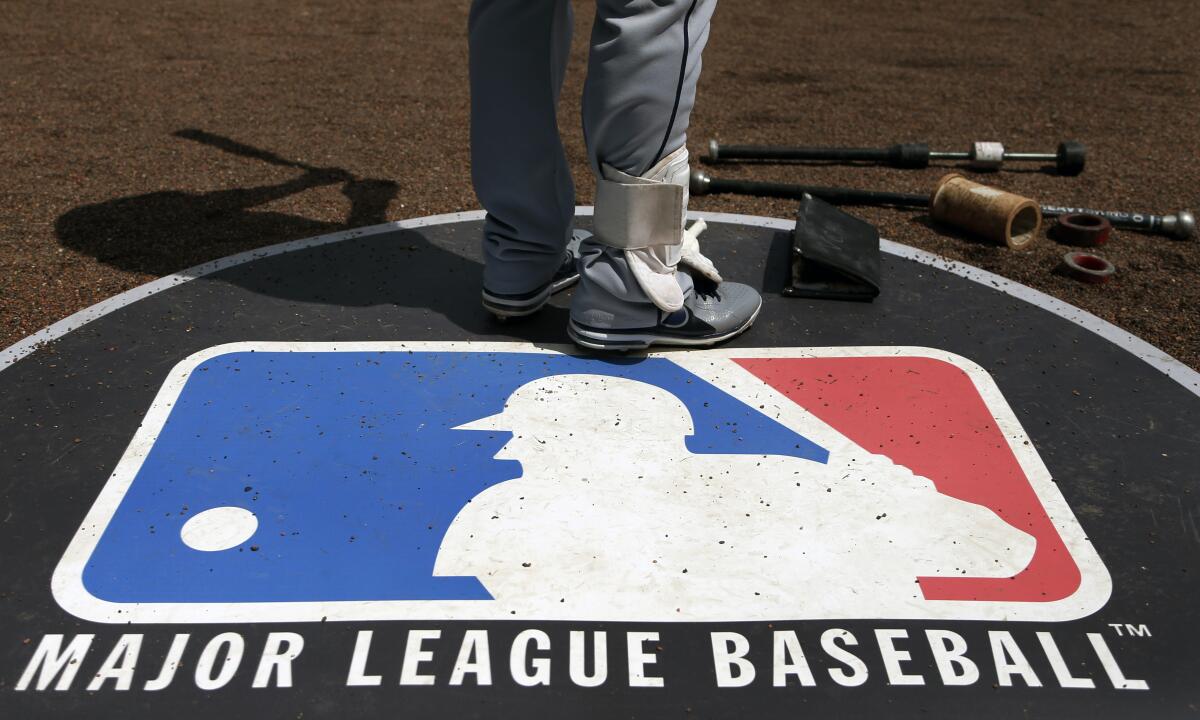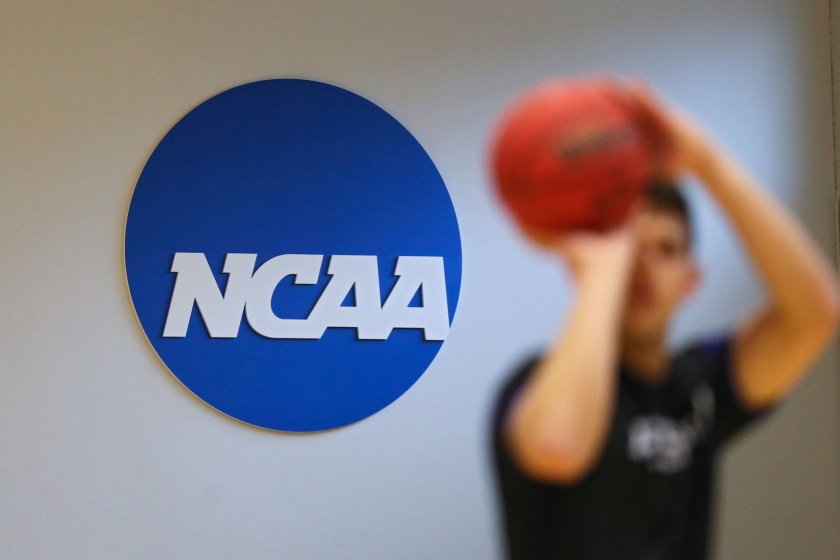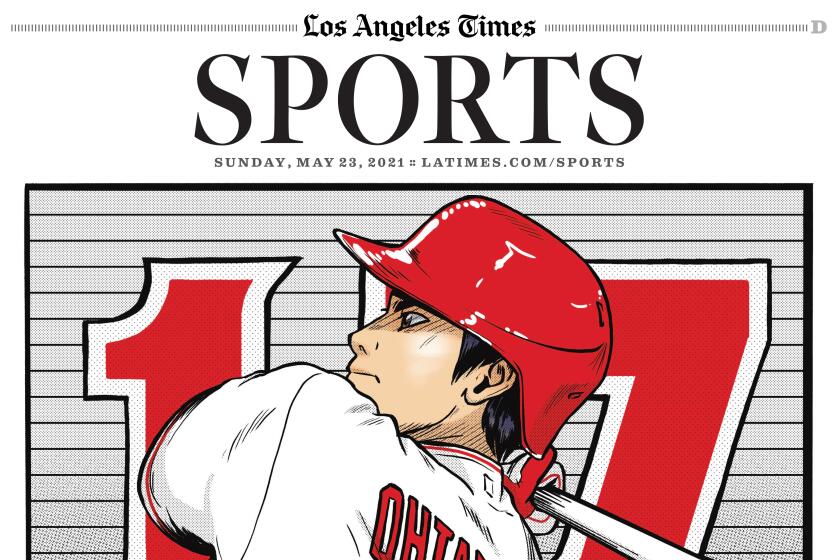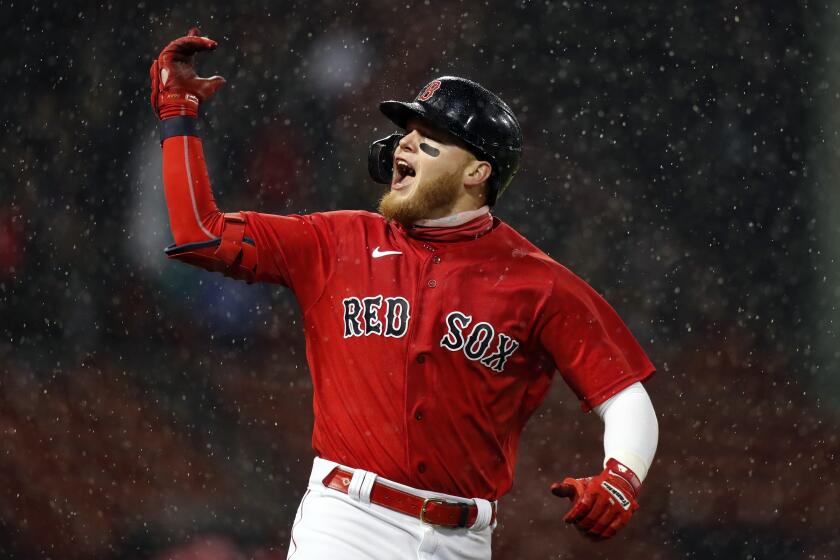Commentary: Did the Supreme Court hint at trouble for MLB’s antitrust exemption?

- Share via
The San Jose Athletics should be in their second decade of life, and in a sparkling new ballpark. Instead, the A’s remain stuck in the creaky and leaky Oakland Coliseum, and in the unseemly position of threatening Oakland, flirting with Las Vegas, and hoping to get a stadium deal somewhere.
San Jose wanted the A’s, and the A’s wanted San Jose. Under Major League Baseball’s territorial rules, the A’s needed the approval of the San Francisco Giants, or a vote of 75% of MLB owners. The Giants refused, and the league declined to put the matter to a vote. San Jose sued, challenging baseball’s antitrust exemption.
San Jose lost in court, twice, both times before judges skeptical of the law but sworn to uphold it. Judge Ronald Whyte called the exemption an “aberration” that “makes little sense.” On appeal, Judge Alex Kozinski called the exemption “one of federal law’s most enduring anomalies.” No other sport has one.
Here’s what you need to know after the Supreme Court sided with athletes in dispute with the NCAA over rules limiting certain compensation.
But the exemption dates to 1922, and neither Congress nor the Supreme Court has seen fit to delete it.
On Monday, the Supreme Court raised the issue, at least in passing, in the middle of a 36-page smackdown of the NCAA.
In writing on behalf of a unanimous court, Justice Neil M. Gorsuch cited evidence submitted by Advocates for Minor Leaguers, noting that the court has declined to extend the exemption to other sports and has acknowledged criticism of what Gorsuch pointedly called “something that looks a bit like an antitrust exemption for professional baseball.”
Harry Marino, the executive director of the advocacy group, said the court might have been sending a signal: This case isn’t about baseball, but we’d be happy to consider a case that is.
“The Supreme Court went out of its way to discuss MLB’s antitrust exemption in a way that cast, I think, significant doubt on its standing at this point,” Marino said Tuesday. “It at least seems like this group of nine is on some level inviting a challenge.”
In his concurring opinion, Justice Brett M. Kavanaugh said the NCAA controls the market for college athletes and limits compensation to below-market rates, with no meaningful way for athletes to negotiate compensation.
By changing “the NCAA” to “Major League Baseball” and “college athletes” to “minor leaguers,” you get to the bottom line the Advocates submitted to the court: “The average annual salary of a minor league baseball player falls between $4,000 and $14,000, placing many players below the federal poverty level.”
Said Marino: “The fundamental basis for the mistreatment of minor leaguers is that MLB owners are exempt from the antitrust laws, so they can get together and collude on minor league salaries.”
In 2016, MLB Commissioner Rob Manfred said minor league baseball was less like a career and “more like apprenticeship programs or artistic pursuits, where there are explicit exceptions to the wage and hour requirements.” Kavanaugh explicitly took aim at that kind of “love of the game” logic: “Law firms cannot conspire to cabin lawyers’ salaries in the name of providing legal services out of a ‘love of the law.’ Hospitals cannot agree to cap nurses’ income in order to create a ‘purer’ form of helping the sick.”
Major League Baseball declined to comment for this column.
Nathaniel Grow, an Indiana University professor who has written extensively about baseball’s antitrust exemption, said neither the Gorsuch nor Kavanaugh opinions discussed the merits of the MLB exemption and said he would be “surprised” if Monday’s decision were to lead to its repeal.
In fact, he said, Congress and the Supreme Court have spoken on the issue within the past quarter-century.
It didn’t take long for Alex Verdugo to win over Red Sox fans despite being associated with the Mookie Betts trade — and the former Dodger is thriving.
In 1998, Congress passed the Curt Flood Act, granting major league players the right to sue under antitrust laws but specifically forbidding minor league players from doing so.
In 2017, the Supreme Court declined to consider a case in which minor leaguers alleged MLB had violated antitrust laws and colluded to suppress player salaries.
In 2018, two years after Manfred spoke, Congress passed legislation that required teams to pay minor leaguers minimum wage, albeit with no overtime pay, and no obligation to pay players outside the five-month minor league season.
As Kavanaugh noted, collective bargaining is an alternative to legislation and litigation. In hockey, minor leaguers have a robust union. In baseball, amid short careers and fears that teams would retaliate against organizers, unionization efforts have made little progress.
In 2018, the court declined to consider two other challenges to baseball’s antitrust exemption. Kavanaugh is one of two new justices since then, and perhaps now the minimum four justices would agree to consider such a challenge.
Or perhaps not. In 2015, when San Jose asked for a hearing before the Supreme Court, the court said no.
More to Read
Go beyond the scoreboard
Get the latest on L.A.'s teams in the daily Sports Report newsletter.
You may occasionally receive promotional content from the Los Angeles Times.














